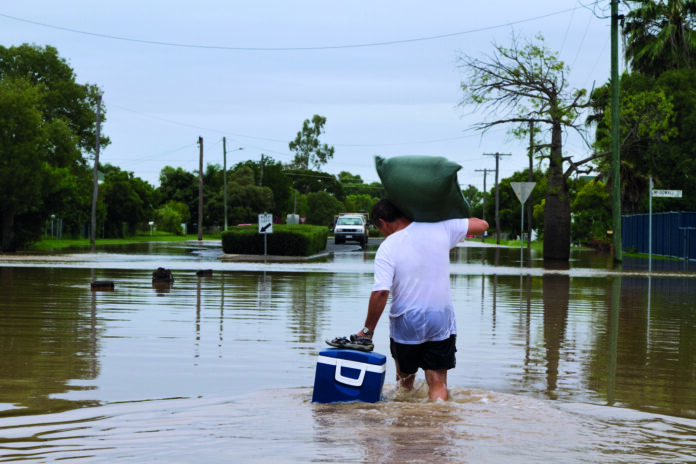A study by researchers from Monash University, Australia – believed to be the world’s largest and most comprehensive study of the long-term health impacts of flooding – has found that communities face a 26% increase in the risk of hospitalisation up to seven months after a flood event.
The study, published in the journal Nature Water, analysed more than 300 million hospitalisation records from 747 communities in eight countries (Australia, Vietnam, Brazil, Canada, Chile, Thailand, New Zealand and Taiwan) that had experienced major flood events between the period of 2010 and 2019. Regions included the northeast region of New South Wales, Australia, the Amazon River and the southern region of Brazil, the Mekong Basin in Vietnam, and the southern region of Thailand.
The study found increases in hospitalisation for cardiovascular diseases (35%), respiratory diseases (30%), infectious diseases (26%), digestive diseases (30%), mental health disorders (11%), diabetes (61%), cancer (34%), nervous system disorders (34%), and renal diseases (40%).
While immediate health impacts of flooding, such as drowning, electrocution and hypothermia, would be expected, this study found long-term impacts on health, including an elevated risk of digestive diseases and the spread of infection through the contamination of water supply systems.
Additionally, the study highlights that floods can create environments that are conducive to the growth of fungi, bacteria, viruses, and vectors such as mice and insects, which can trigger outbreaks of respiratory, digestive and infectious diseases, and force mass evacuations, causing displacement, with people living in temporary shelters and having access to limited sanitation facilities – resulting in poor hygiene, with conditions raising the likelihood of respiratory, digestive, and infectious diseases. Access and capacity to healthcare services may also be impaired after floods, leading to delays in medical interventions; and psychological stress from property damage and financial losses can worsen or induce adverse health outcomes.
Adding to this picture, a study by researchers from Columbia University’s Mailman School of Public Health, in partnership with researchers at Arizona State University, Harvard University and the University of Arizona, USA, published in Nature Medicine, analysed the impact of floods on mortality over the past 20 years.
The researchers used a statistical model to calculate how death rates changed in three-month periods following large floods compared with equivalent periods in normal conditions.
The researchers found the largest overall increases in injury death rates among older people (24.9%) and females (21.2%) during the month of tropical storm/hurricane-related flooding, with increases in death rates associated with heavy rain-related flooding for infectious diseases (3.2%) and cardiovascular diseases (2.1%). Snowmelt-related floods were also associated with higher death rates for certain diseases.








